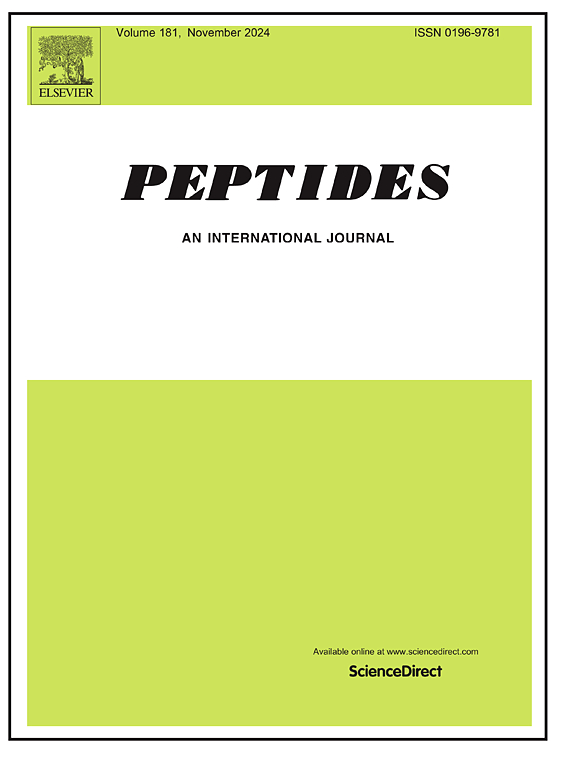Peptide‑based therapeutic strategies for glioma: Current state and prospects
IF 2.9
4区 医学
Q3 BIOCHEMISTRY & MOLECULAR BIOLOGY
引用次数: 0
Abstract
Glioma is a prevalent form of primary malignant central nervous system tumor, characterized by its cellular invasiveness, rapid growth, and the presence of the blood-brain barrier (BBB)/blood-brain tumor barrier (BBTB). Current therapeutic approaches, such as chemotherapy and radiotherapy, have shown limited efficacy in achieving significant antitumor effects. Therefore, there is an urgent demand for new treatments. Therapeutic peptides represent an innovative class of pharmaceutical agents with lower immunogenicity and toxicity. They are easily modifiable via chemical means and possess deep tissue penetration capabilities which reduce side effects and drug resistance. These unique pharmacokinetic characteristics make peptides a rapidly growing class of new therapeutics that have demonstrated significant progress in glioma treatment. This review outlines the efforts and accomplishments in peptide-based therapeutic strategies for glioma. These therapeutic peptides can be classified into four types based on their anti-tumor function: tumor-homing peptides, inhibitor/antagonist peptides targeting cell surface receptors, interference peptides, and peptide vaccines. Furthermore, we briefly summarize the results from clinical trials of therapeutic peptides in glioma, which shows that peptide-based therapeutic strategies exhibit great potential as multifunctional players in glioma therapy.
基于肽的胶质瘤治疗策略:现状和前景
胶质瘤是一种常见的原发性中枢神经系统恶性肿瘤,其特点是细胞侵袭性强,生长迅速,存在血脑屏障(BBB)/血脑肿瘤屏障(BBTB)。目前的治疗方法,如化疗和放疗,在取得显著的抗肿瘤效果方面疗效有限。因此,迫切需要新的治疗方法。治疗肽是一类具有较低免疫原性和毒性的创新药物。它们很容易通过化学手段进行修饰,并具有深层组织渗透能力,从而减少副作用和耐药性。这些独特的药代动力学特征使多肽成为一种快速增长的新疗法,在胶质瘤治疗中取得了重大进展。本文综述了以肽为基础的胶质瘤治疗策略的努力和成就。这些治疗性肽可根据其抗肿瘤功能分为四类:肿瘤归巢肽、靶向细胞表面受体的抑制剂/拮抗剂肽、干扰肽和肽疫苗。此外,我们简要总结了胶质瘤治疗肽的临床试验结果,表明基于肽的治疗策略在胶质瘤治疗中具有巨大的潜力。
本文章由计算机程序翻译,如有差异,请以英文原文为准。
求助全文
约1分钟内获得全文
求助全文
来源期刊

Peptides
医学-生化与分子生物学
CiteScore
6.40
自引率
6.70%
发文量
130
审稿时长
28 days
期刊介绍:
Peptides is an international journal presenting original contributions on the biochemistry, physiology and pharmacology of biological active peptides, as well as their functions that relate to gastroenterology, endocrinology, and behavioral effects.
Peptides emphasizes all aspects of high profile peptide research in mammals and non-mammalian vertebrates. Special consideration can be given to plants and invertebrates. Submission of articles with clinical relevance is particularly encouraged.
 求助内容:
求助内容: 应助结果提醒方式:
应助结果提醒方式:


